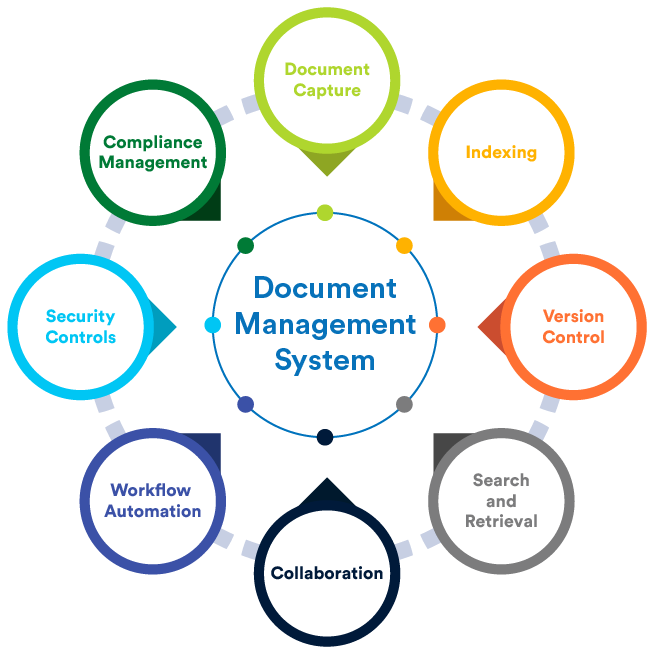The life sciences and manufacturing industries are heavily regulated, making compliance and document control critical for business success. With an increasing reliance on technology, companies in the medical device, pharmaceutical, aerospace, and automotive sectors need to prioritize integrating the right systems to enhance their processes. When choosing Document Management Software (DMS) for your business, there are several key integrations to consider that will optimize your operations, ensure compliance, and streamline workflow.
1. Integration with Cloud-Based DMS Solutions
As businesses increasingly move their operations online, cloud-based document management software has become essential. Integrating your DMS with cloud platforms ensures easy accessibility, storage, and retrieval of documents from anywhere in the world. Cloud-based DMS solutions also provide scalability and security, both of which are crucial for industries dealing with sensitive data and stringent regulatory requirements.
Importance of Cloud-Based Integration in Life Sciences
In the life sciences sector, companies must handle extensive documentation, including clinical trial data, regulatory submissions, and quality assurance records. A cloud-based document management system ensures that these documents are stored securely, can be easily retrieved, and meet compliance standards, such as FDA’s 21 CFR Part 11.
2. Integration with Document Control Software for Enhanced Compliance
Document control software plays a critical role in ensuring that your company’s documentation adheres to regulatory standards. Integrating document management software with a robust document control system will allow your business to automate version control, track changes, and ensure that only authorized personnel have access to specific documents.
Document Control for Manufacturing Companies
For companies in the manufacturing sector, particularly those engaged in complex manufacturing like automotive and aerospace, document control is critical for meeting industry-specific regulations. Integration with document control software ensures real-time updates, automatic notifications for approvals, and streamlined audits, making the compliance process more efficient.
3. Integration with Quality Management Systems (QMS)
In regulated industries, quality management is crucial to ensuring product safety and meeting regulatory requirements. A seamless integration between document management software and your quality management system allows for better tracking of quality events, such as nonconformances, deviations, and corrective actions.
How QMS Integration Enhances Document Management
By integrating QMS with your document management system, you can ensure that all quality-related documents are easily accessible to relevant teams. For instance, corrective action and preventive action (CAPA) documentation can be linked directly to the QMS, ensuring that all records are centralized and easy to retrieve for audits or compliance checks.
4. Regulatory Compliance Integration
For businesses in highly regulated industries, maintaining compliance with local and international standards is a constant challenge. Integrating your document management software with regulatory compliance tools ensures that your business stays compliant with ever-evolving standards.
Ensuring Global Compliance in Pharmaceuticals
With document management systems integrated with regulatory compliance tools, pharmaceutical companies can manage documentation for global submissions more effectively. These integrations also ensure that documents related to Good Manufacturing Practices (GMP), clinical trials, and adverse event reporting are easily accessible and compliant with regulatory guidelines.
5. Seamless Integration with Enterprise Resource Planning (ERP) Systems
Integrating document management software with ERP systems enables seamless coordination between document control and broader enterprise operations. In industries such as high-tech manufacturing or heavy equipment production, this ensures that every department can access up-to-date documents, such as engineering drawings or specifications..
ERP and Document Management in Complex Manufacturing
For companies involved in complex manufacturing, like aerospace and defense, ERP integration ensures that documentation is always aligned with production schedules and inventory management. This improves the accuracy of operations, reduces delays, and ensures that teams can make informed decisions based on real-time data.
6. Collaboration and Communication Tools Integration
Collaboration is essential for global businesses, especially those in the life sciences and manufacturing sectors. Integrating document management software with communication and collaboration tools like Slack, Microsoft Teams, or Zoom ensures seamless interaction between teams. This integration improves workflow efficiency, enabling quick decision-making and easier sharing of documents across departments and regions.
Boosting Collaboration in Life Sciences
In the medical device and pharmaceutical industries, collaboration between quality assurance, regulatory affairs, and product development teams is vital. By integrating collaboration tools with Document Management systems, businesses can ensure that all teams are working from the latest, approved versions of documents, reducing the risk of errors or delays.
7. Integration with Electronic Signature Software
Electronic signatures are critical for industries that require stringent document approvals and audits, such as pharmaceuticals, medical devices, and aerospace. Integrating document management software with electronic signature tools such as DocuSign or Adobe Sign ensures that documents can be signed securely and promptly, adhering to compliance requirements like 21 CFR Part 11.
Importance of Electronic Signatures for Compliance
In regulated industries, electronic signatures provide an auditable trail that meets compliance requirements. Integrating this capability into your document management system eliminates the need for physical paperwork, speeding up approvals while ensuring compliance with industry regulations.
8. Security and Encryption Integrations
Data security is of paramount importance for industries dealing with sensitive information, such as the life sciences and manufacturing sectors. Ensuring that your document management software integrates with advanced security and encryption tools will protect your documents from unauthorized access and ensure compliance with data protection regulations like GDPR.
Ensuring Document Security in Aerospace and Defense
Aerospace and defense companies deal with confidential documents that need to be protected against breaches. By integrating encryption and security features with document management software, businesses can ensure that their documentation is safe from unauthorized access and cyber threats.
Conclusion
When choosing document management software for your business, integrating the right systems is essential for efficiency, compliance, and collaboration. ComplianceQuest offers a comprehensive solution that integrates seamlessly with cloud-based DMS, document control software, and regulatory compliance tools, making it an ideal choice for businesses in highly regulated industries like life sciences and complex manufacturing. With ComplianceQuest, you can ensure that your business stays ahead of the competition, remains compliant with evolving regulations, and improves overall operational efficiency in 2024 and beyond.





Comments